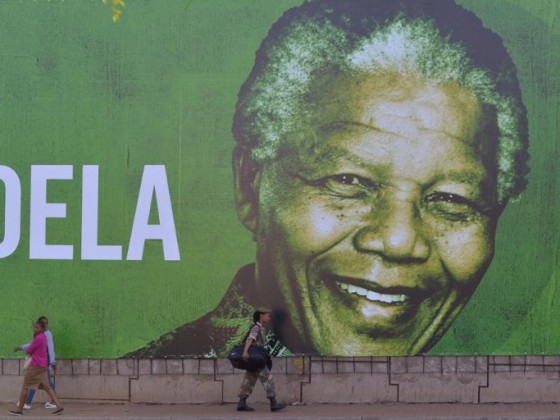JOHANNESBURG, South Africa — Nelson Mandela is known by many epithets: freedom fighter, anti-apartheid hero, global icon.
But two years after his death, a heated debate has emerged in South Africa that questions part of this towering legacy: was Mandela a sellout?
To some this might seem a shocking, even taboo sentiment. Here in South Africa it speaks to the feeling that black people got a raw deal in the negotiations that ended apartheid.
